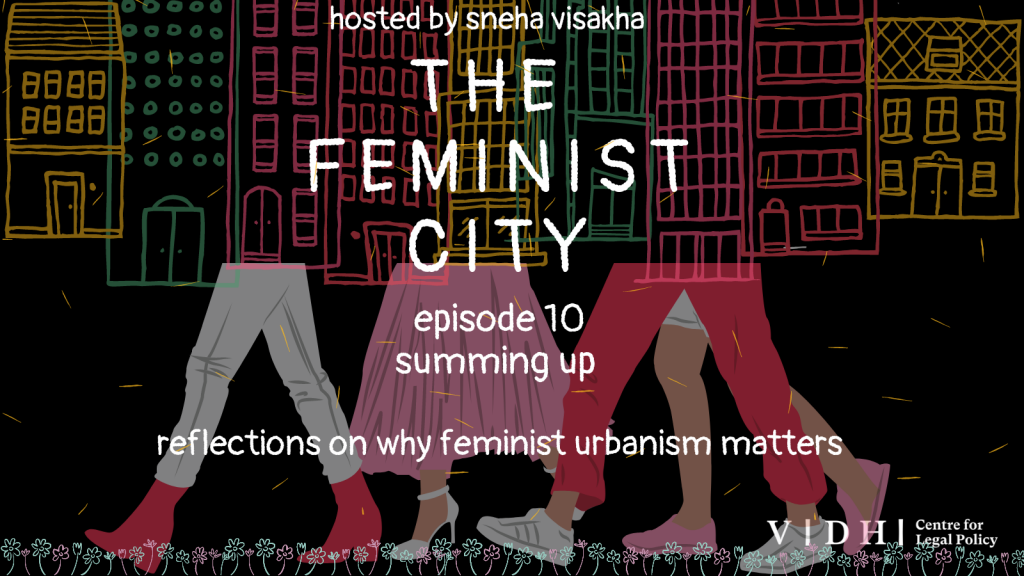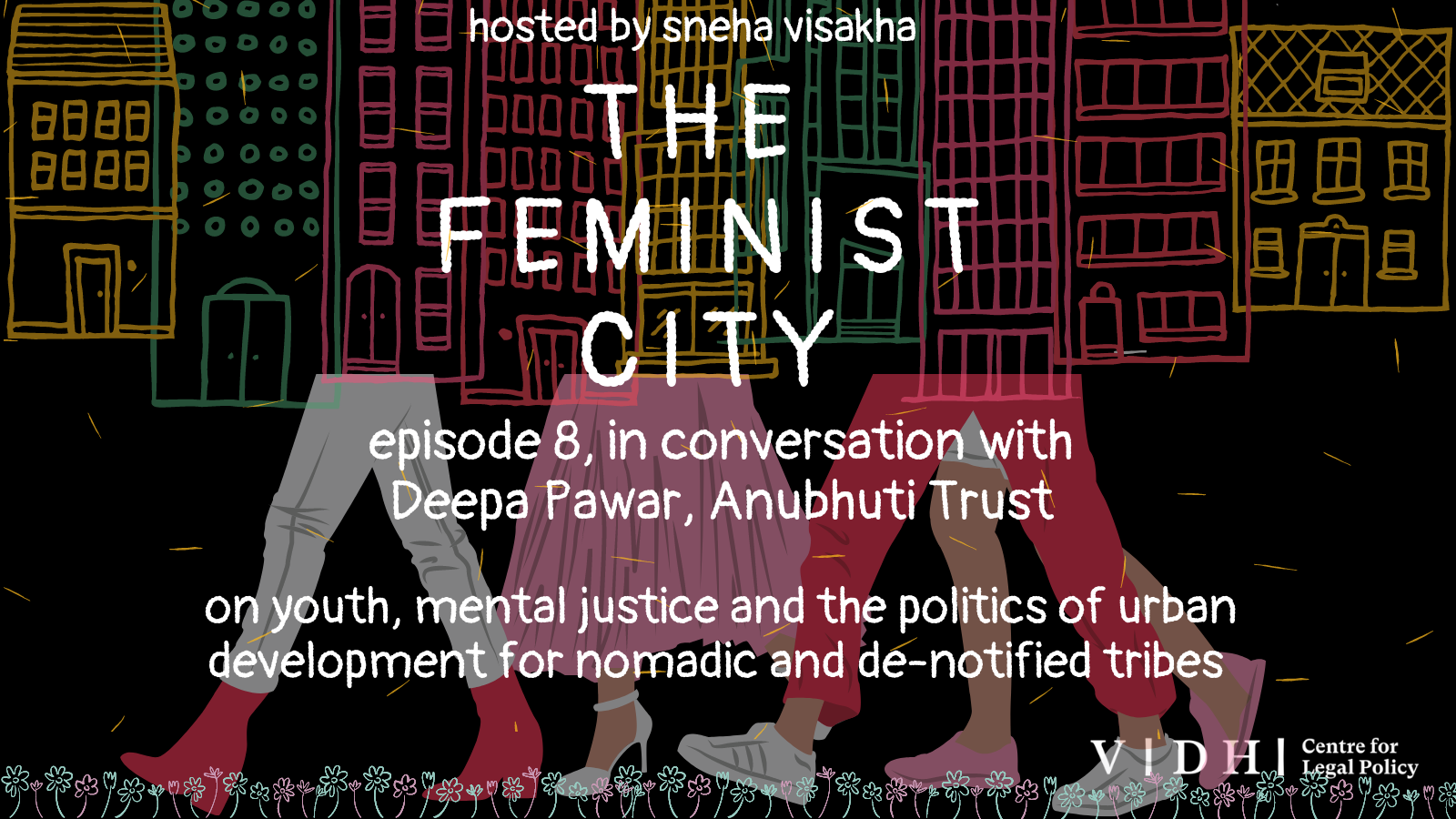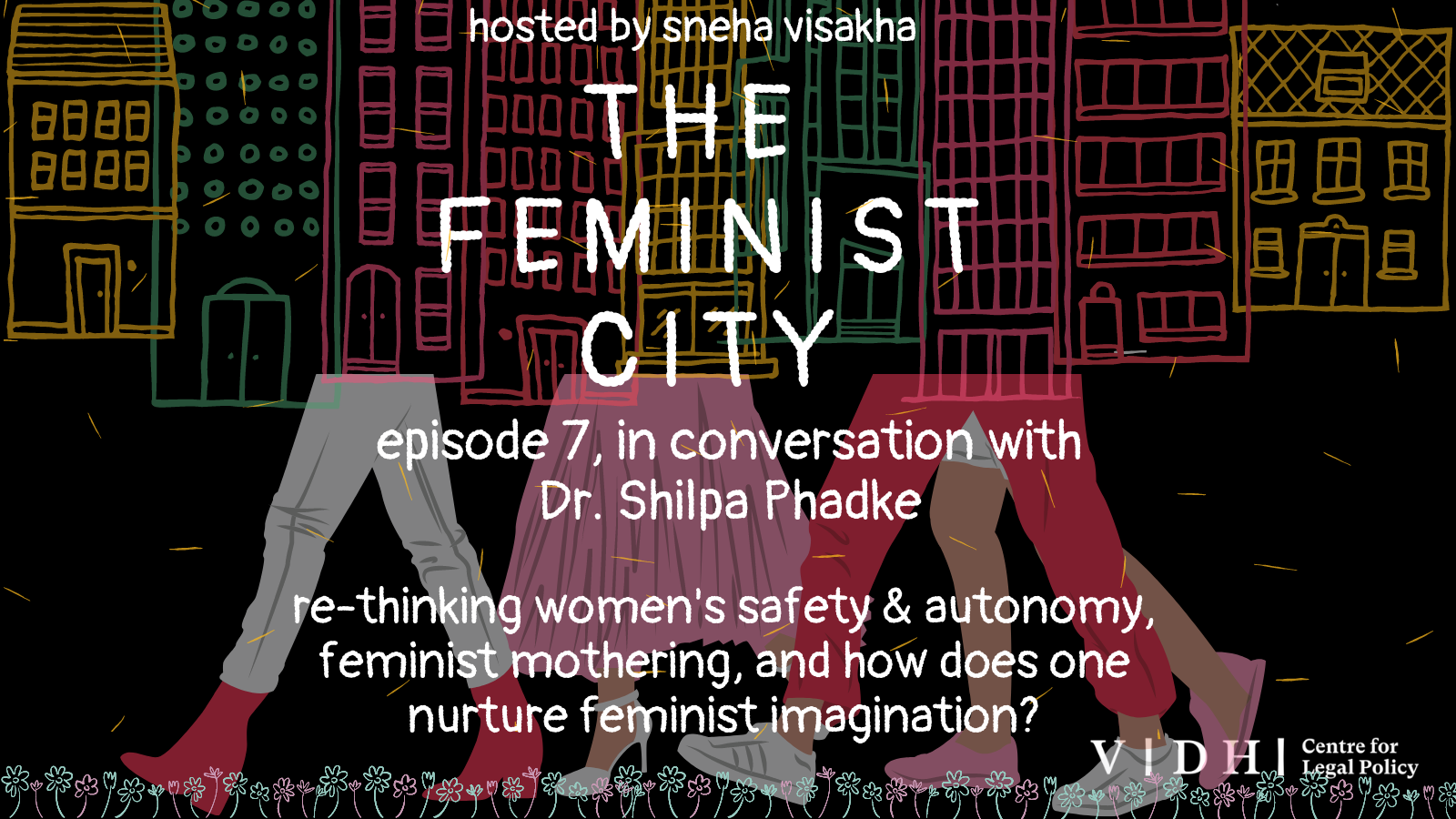
Producer and Host: Sneha Visakha;
Intro Music: Wehrmut by Godmode;
Outro Music: Opheliea’s Blues by Audionautix
TW: references to violence against women, girls, gender and sexual minorities
In the final episode of this season of the Feminist City podcast series, Sneha Visakha engages with the why feminist urbanism matters, reflecting on the learnings garnered from this project so far. She describes the background of this project and discusses key cases that spurred conversations on the relationship between women and urban public space – from the Nirbhaya case in 2012, the case concerning Dr. Priyanka Reddy in 2019, and more recently, Sarah Everard in March 2021 – and how responses in each instance seems to be riddled with the same set of stereotypes and misconceptions that plague popular understanding of patriarchal violence against women and girls and how to prevent it.
She discusses the biased nature of English media reporting in India of ‘people like us’ which tend to focus on specific instances of brutal violence affecting certain classes of privileged women in urban centres, rather than attend to the ongoing and systemic nature of gender-based violence.
She also discusses the importance of understanding the city as an active participant in the production of patriarchal violence and of adopting an intersectional feminist approach that interrogates the material basis of exclusion in the city that disadvantages women and girls on the basis of gender in addition to other forms of social identity such as caste, class, religion, sexuality, ability and others. She concludes the episode with revisiting the question of why feminist urbanism matters and what it entails for lawyers, policy practitioners and for everyone interested in building safe and equitable cities.
Readings:
Making a Feminist City – Planning Safety and Autonomy for Women, Sneha Visakha
vidhilegalpolicy.in/research/making…nomy-for-women/
British Police Officer Charged With Murder in Killing of Sarah Everard, Elian Peltier, The New York Times, March 2021
www.nytimes.com/2021/03/12/world/…arah-everard.html
Devastatingly pervasive: 1 in 3 women globally experience violence, World Health Organisation, March 2021
www.who.int/news/item/09-03-202…experience-violence
Rape Culture in India: The Role of the English-Language Press, Joanna Jolly & Uzra Khan
shorensteincenter.org/rape-culture-i…anguage-press/
Dalit women continue to face atrocities for claiming their rights, Ritwika Mitra, The New Indian Express
www.newindianexpress.com/nation/2021/…2274367.html
Four deaths and an arrest mark Adivasi women’s struggles with Bastar police, Malini Subramaniam, Scroll.in
scroll.in/article/990264/four-…s-with-bastar-police
Nandini Sundar: Militarization of the imagination, Chitrangada Choudhury, LiveMint
www.livemint.com/Leisure/zyfPVZSN…imagination.html
Woman’s suicide prompts Indian state to mull LGBT+ conversion therapy ban, Devasia Jose, Reuters
www.reuters.com/article/us-india-…rfn-idUSKBN27D1OU
Misgendering, Sexual Violence, Harassment: What it Is to Be a Transgender Person in an Indian Prison, Sukanya Shantha, The Wire
thewire.in/lgbtqia/transgender-prisoners-india
Books:
The Rape of Sita, Lindsey Collen
www.feministpress.org/books-n-z/the-rape-of
The Burning Forest, Nandini Sundar
www.juggernaut.in/books/burning-forest-1
Video:
The deteriorating health of Bengaluru’s Pourakarmikas, Theja Ram, The News Minute; See the video interview in this link.
www.facebook.com/watch/?v=2727740800626137


